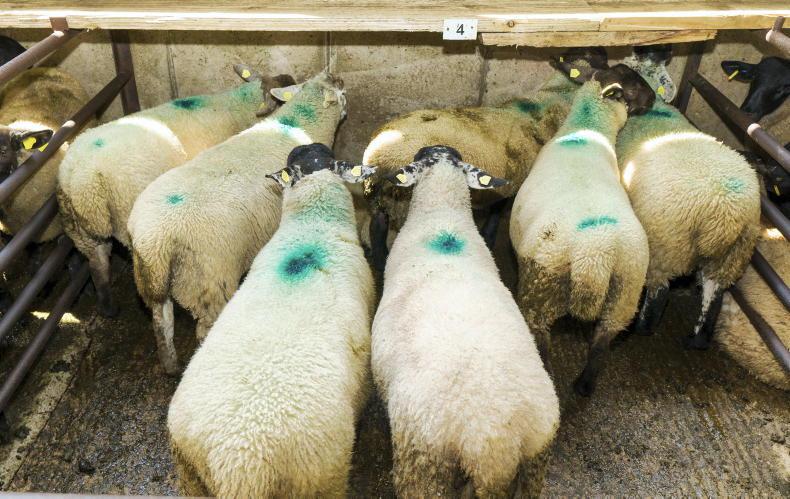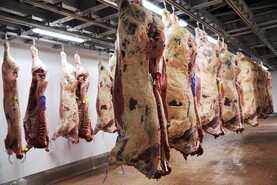Lamb prices have settled in a strong position following bumper kills for the religious festival of Eid al-Adha.
Last week’s kill was recorded at 64,183 head and while this was a reduction of 13,749 on the previous week, it was still in the region of 6,000 head above previous weeks’ throughput. This reflects the strength in demand for this year’s festival.
A combination of no overhang of supplies in the market and the fact that numbers of slaughter-fit lambs currently coming on to the market are tight has helped steady the trade at a relatively high price point.
The only change to last week’s quote is Kildare Chilling’s base quote of €6.20/kg falling 10c/kg.
The base price on offer in the remaining plants is generally €6.00/kg, with a couple of plants that dropped under the €6/kg mark increasing quotes in recent days in a bid to attract higher numbers forward.
The general run of prices reported for quality assured (QA) lamb is in the region of €6.20/kg to €6.30/kg, with groups and those with greater negotiating power securing 5c/kg to 10c/kg higher.
This is being secured through group bonuses or allowances on transport, while some buyers offering the lower quotes are trying to sweeten deals by offering regular suppliers an extra half kilo on paid carcase weight limits.
The trade in export markets is being helped by supplies also tightening in Britain.
The latest Agriculture and Horticulture Development Board (AHDB) price report shows the average deadweight price for last week rising by 5p/kg to average £5.60/kg or €6.59/kg at 85p to the euro.
Prices this week range from £5.50/kg to £5.60/kg, with regional differences evident. This is helping the competitiveness of Irish lamb in key export markets.
Northern Ireland (NI) plants pulled prices aggressively last week and have also been forced to pay more this week, as the backlog in supplies which had developed is eroded.
Base quotes are up 5p/kg to £4.75/kg, but producers with greater negotiating power are securing returns of £4.90/kg (€5.77/kg).
The mart trade has also improved, with agents competing with more force and trying to ward off competition from agents purchasing for direct slaughter in southern plants.
The number of sheep imported south last week for direct slaughter was 7,888 head, which is an increase of about 1,000 on the previous week.
Imports of sheep from NI have been running at a much lower level in 2021, with total numbers coming south at 138,999 head running about 50,000 behind 2020.






 This is a subscriber-only article
This is a subscriber-only article











SHARING OPTIONS: